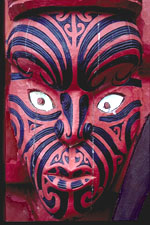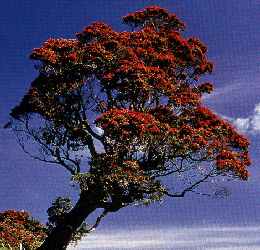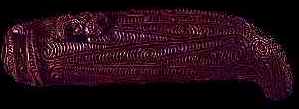
"Whangaihia te tangata Ki te ika ora ia mo ra tahi,
engari akohia ki te hi ora ia mo ake tonu ake (atu)".
(Feed a man with fish, he will live from day to day,
teach him how to fish, he will live forever.)
Ko te wharangi haukainga nei
mo nga iwi katoa.
a monthly review of law affecting the
indigenous Maori people of Aotearoa (New Zealand).

It is true that science is knowledge, but it is equally true that ALL knowledge is biased, ALL knowledge is culturally defined. In this we must shift our arguement from one of science to one of scientific method and this I believe is where the failing of western `science' arises.
Our tupuna (ancestors) where obviously great scientists and scholars, how else were we able to adapt and survive in our respective lands, the navigation and maritime skills of my Polynesian forebears, and the great civiliszations and technologies of yours prooves this. However it is the way they aquired and analyzed knowledge which differs to western scientific method.
Western Scientific method being one of `Hypothesis-Test-Hypothesis' means that all observation and experimentation is determined and largely defined by the initial theory upon which the hypothesis is based. The result of this is that the scientist will observe the data appropriate to the theory, (their observation being constrained by their theories), and will thus either prove or disprove that theory.
The sad thing about this is that scientific method has become the dominant form in all western/colonial thinking in both pure and social science. In New Zealand less than 1% of scientists are Iwi maori.
The Tohunga (keepers of knowledge) of my people, also used observation and experimentation, they would cross examine travellers and explorers, and they would gather to debate the tenants of knowledge (this was one of the functions of Taputapuatea marae on Rangiatea (Ra'iatea in the Society Islands)). The knowledge thus procured would be intergrated and compared to `myth' defined schemes and thus become accepted truth.
The methods they used however were not theory based abstractions as in western science. They were practical, experience-orientated observations made whilst involved in a given activity - thus the Polynesians had Tohunga tatai aro rangi, Professional Navigators who knew everything their was to know about navigation and locating yourself at sea, by actualling observing the stars and going out on their ships, tasting and feeling the water for salinity and temperature, observing the movement of sea and air currents, sea swells, fish and birds.
Their system of knowledge was able to discern the volcanic rim of fire which coming from the north, runs through the centre of the country. They were able to detail the development of a feotus, discribe the appearance of a bird in the shell, describe the enternal workings of the human body and with nothing but `stoneage tools' produce intricately carved peices which only with laser technology is being reproduced.
The statement that data is neutral and unbiased is misguided and entirely a product of western scientific thinking.
Each society sees and defines it's world through culturally biased eyes. The things seen (the raw data) is different, the `truths/facts' extracted are culturally determined, and the absolute scheme of knowledge and truth - that societies reality - is unique.
Native peoples around the world do need more scientists, but let us remember always that western science is a product of western knowledge. We all have our own knowledge and thus our own science - the challenge is to rediscover our own truth, and create our own reality not live it one that colonisation has imposed.
Naku noa
Tena ka mihi atu ki a koutou me to whanau kei te tuara o te
honu.
(Acknowledgements to you and your family upon the back of the turtle island.)
Rangiatea ll History ll Rangiatea in Aotearoa
Tatai Korero/Tuwharetoa Panui
RD 1 Hirangi Road
Turangi
New Zealand
Maori Students Officer
Te Roopu Maori
527 Castle Street
Otago University Students Association
Dunedin
New Zealand

![]() Return to Indigenous Peoples' Literature
Return to Indigenous Peoples' Literature
Compiled by: Glenn Welker
This site has been accessed 10,000,000 times since February 8, 1996.